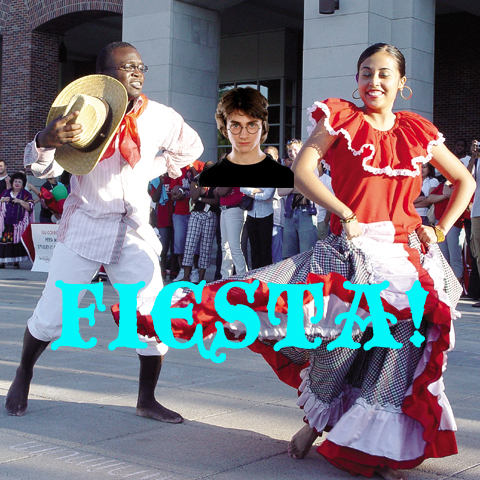Archive
Adventures of Huckleberry Finn
We’re going to take a break from politics, internet memes, and pop culture to discuss the American classic, Huckleberry Finn, in the first official installment of
Classic Literature with Phil the Pi–

"YO, HUCK, I'M HAPPY FOR YOU. I'MMA LET YOU FINISH. BUT TOM SAWYER WAS THE BEST MARK TWAIN CHARACTER OF ALL TIME!"
…
Classic Literature with Phil the Pill.
—–
Adventures of Huckleberry Finn is the sequel to Mark Twain’s children’s classic, The Adventures of Tom Sawyer, in which preteens Tom Sawyer and Hucklerry Finn discover a small fortune in antebellum Missouri, around 1838. One year later, Huckleberry, biological son of a wandering drunk, has been adopted by the Widow Douglas, who attempts to instill him with religious values and mores of civilized folk. Huck’s money has been invested by the town’s Judge Thatcher, who is harassed by Huck’s father’s attempts to claim the money for himself.
The elder Finn becomes fed up with his legal hurdles and kidnaps Huck, taking the boy away from civilization to live off the land near the Mississippi River. Though glad to be away from church and stiff clothes, Huck hates being around his father and fakes his own death before running away to an island in the river. There, he finds Jim, a slave acquaintance who has run away to escape being sold to New Orleans by his mistress and one of Huck’s former caretakers, Miss Watson.
Together on a raft, the two travel along the Mississippi River in search of their own interpretations of freedom.

Disclaimer: My use of racial epithets in this blog post is strictly for the purposes of reporting, literary criticism and analysis. I do not endorse the regular use of racial slurs nor do I subscribe to the belief that is appropriate for me to use them in most contexts.
The book is frequently on ban-lists for public schools and children’s libraries. In contemporary times, watchful librarians get in a flutter over the use of the word “nigger.” The predominant belief is that kids are sponges who will repeat all words they read. Of course, a simple explanation by a parent or teacher should make most readers understand that the book was written in a time when the word was in common vernacular and racism was unfortunately institutionalized.
Additionally, there’s the portrayal of Jim, who is superstitious, uneducated, and unconditionally trusting of his white friends. Never mind the fact that just about every white character is some degree of insufferably stupid or nasty, we must focus on Twain’s portrayal of a man with societal obstacles keeping him from speaking the Queen’s English.
I was able to check out Huck Finn from the library in sixth grade and I didn’t become a racist who liberally uses the N-word. However, while I was able to enjoy the image of escaping confinement on a river raft, I wasn’t able to pick up the satire or social commentary. In all honesty, for the longest time, I didn’t understand what the big deal was about. To me, it was a simple story of a boy and a black man before the Civil War, written in a time when “nigger” was acceptable. Today, I realize it’s more complex, but I still err on the side of giving people access to literature.
High school courses teaching American Literature do their students a disservice by withholding Huckleberry Finn, not necessarily because of the book’s quality, but because of the book’s literary significance and important message about the antebellum age. It is an educator’s job to set the context so that students don’t assume that old racial stereotypes have merit. And, as it stands, for all the racial conflict that certainly exists, each successive generation is better at taking it for granted that people of different races have an equal chance at sucking.
However, Huck Finn was also banned during a time when writing “nigger” or portraying black characters as simpletons weren’t controversial offenses. The novel was one of the first to be narrated in the protagonist’s distinct southern dialect. The first line evolved from “You will not know about me” to “You don’t know about me without you have read a book by the name of The Adventures of Tom Sawyer, but that ain’t no mater.” The entire book is written in this matter and includes other major dialects from its many Southern characters, including the hard-to-decipher southern slave dialect.

"Yo' ole father doan' know yit what he's a-gwyne to do....You wants to keep 'way fum de water as much as you kin, en don't run no resk, 'kase it's down in de bills dat you's gwyne to git hung."....Uh, what?
One of the initial statements for the original bannings famously went:
“One member of the committee says that, while he does not wish to call it immoral, he thinks it contains but little humor, and that of a very coarse type. He regards it as the veriest trash. The library and the other members of the committee entertain similar views, characterizing it as rough, coarse, and inelegant, dealing with a series of experiences not elevating, the whole book being more suited to the slums than to intelligent, respectable people.”
To which Mark Twain replied that the statement would help sell another five thousand copies for sure.
So libraries of the time considered the language and themes of the book to be too crude for “intelligent, respectable people” (which, today, we have no illusions of having in this country). But below that must have been the slightly then-disturbing themes of Huck very early proclaiming being irreligious and the idea of becoming friends with a black man and a slave. Certainly there must have been some authorities who objected to promoting the idea of blacks as people, however enveloped in minstrel show antics and antebellum legal ideas the book was.
Literary experts and Twain himself say the book is about the battle between Huck Finn’s conscience and his heart. His conscience, shaped by surrounding society, tells him it’s wrong to help an escaped slave to freedom. His heart tells him Jim is a good man who he shouldn’t betray. It’s an intriguing statement, when you consider how the idea of following your conscience is drilled into our skulls from the time we’re able to watch PBS and Disney’s Pinnochio. I suppose good little boys and girls don’t stop to consider if Jiminy Cricket could be a prejudiced asshole.
But much of the book is shadowed by this discussion of racial politics. Beyond this, the story is recognized as a satire of the American South, full of ingenuous mobs and self-serving dicks. The embodiment of this criticism are the Duke of Bridgwater and the King of France, two con artists who join up with Huck and Jim and pretend to be nobility. They make their living by luring simpletons into traps such as the Royal Nonesuch, a theatrical spectacle that is essentially the King of France prancing around naked on a stage. The first audience, rather than demanding their money back, reason:
This is the same mentality that keeps people going to Disney World's Spaceship Earth.
“We are sold–mighty sold. But we don’t want to be the laughing stock of this whole town, I reckon,
and never hear the last of this thing as long as we live. NO. What we want is to go out of here quiet, and talk this show up, and sell the REST of the town! Then we’ll all be in the same boat. Ain’t that sensible?”
This criticism evolves into a satire of the idea of nobility and the moral superiority of authority. Huck eventually deduces that the King and the Duke are frauds and even Jim, who takes them at their word, expresses confusion at their less-than-noble deeds, to which Huck responds:
“That’s kind of bug Henry [VIII] was; and if we’d a had him along ‘stead of our kings he’d a fooled that town a heap worse than ourn done. I don’t say that ourn is lambs, because they ain’t, when you come right down to the cold facts; but they ain’t nothing to THAT old ram, anyway. All I say is, kings is kings, and you got to make allowances. Take them all around, they’re a mighty ornery lot. It’s the way they’re raised.”
My English professor, who assigned my class Huck Finn, believes that Twain is holding up the ideal of the American dream as freedom contrasted with the “civility” associated with royalty and proper society. I’m under the impression that this is a theme in most of Twain’s work; the unmasking of the “being proper” concept. In Huck Finn, the “proper people” would capture Jim and sell him for a dollar value and instill a fear of hellfire and brimstone in children like Huck, who appreciates his legal guardian’s interpretation of Christianity, but is turned off by the strict and arbitrary rules of her sister, Jim’s mistress.
One of my favorite moments of satire in the entire novel is Huck’s encounter with the feuding families, the Grangerfords and the Shepherdsons. The clans have spent generations picking each other off over a dispute with details so unremarkable, the younger generation can’t even recall the specifics. When Huck escapes, he reunites with Jim who embraces him with love and affection. If rules and civilized life for whites means killing men for no good reason, why would Huck want to stay?
Huck is happiest when he and Jim are alone on the raft, contemplating the stars, free from society and their attempts to civilize him. This is Twain’s embodiment of the American dream. Freedom from tyranny. Freedom from persecution (in that moment). Freedom to be who you are and follow one’s heart instead of one’s conscience. And it’s a shame that Huck’s experience of this freedom is so short-lived.
ENDING SPOILERS
Having forgotten the progression of the plot when I first read it 9 years ago, I was expecting an ending that would embrace this idea of freedom more overtly. But when you get to the part when Huck shakes off the Duke and the King, the book shifts in tone and theme. It’s not necessarily inferior in its humor or its plot, but the payoff to this episode in Adventures is a slap in the face to that moment on the raft where Huck realizes where he is happiest.
The book was already dragging with the Frauds’ plot to rob an innocent family of their money when it finally escapes those characters’ presence. But Huck, in search of Jim, manages to wriggle out of their grasp only to find himself in the larger-than-life hold of none other than Tom Sawyer.

"Whatcha doin' there, Tom?" "Oh, upstaging my best friend in his own book."
I appreciate Twain’s point in using Tom to highlight the difference between him and Huckleberry. Whereas Sawyer, as a man of principle, is willing to delay the rescue of Jim for the sake of a good adventure, romantic and by-the-book, Huck knows the value of being practical, and would much sooner dig Jim out of his shack with a shovel and run off silently. Tom, hilariously enough, gets so carried away he ultimately gets an entire mob of farmers shooting at them through his antics. Throughout the ordeal, Huck chooses to defer to Tom, assuming that his deluded best friend knows best.
Like I said, I don’t mind this distinction and I think Tom could have been a great addition to the story, had he only taken up a couple of chapters. But once Tom arrives, he steals the show, calls the shots, and ultimately reveals the truth about Jim’s status as a slave. The whole buildup would have been worthwhile if Huck, after all he’s been through, had put his foot down and snapped Tom out of his “principles” in order to do the right thing.
Instead, we get a nicely constructed conclusion and the possibility of Huck being adopted again in a renwed attempt to “civilize” him.
It’s like Twain himself was exhausted in his efforts to bring this character to his proper destiny. Huck grumbles at the end about the trouble of writin’ a book and how he plans to move out West. But, if his deference to Tom demonstrates anything, it’s that Huck will not escape the silly rules that confound him. In fact, the unfinished sequels in this series of books all involve Tom Sawyer, not simply Huck Finn. (Though Huck Finn and Tom Sawyer Among the Indians implies that Huck successfully ran away from potential guardian Aunt Sally). As long as Tom is at his side, Huck is constrained by something…but then again, we know he would never forsake his friend.
But it’s not Tom Sawyer that stands as the great in American literature. He’s an indelible character in children’s lit for sure, but Huck Finn is the one that breaks into the mature mold. Huck represents the growing pains we all feel when a ridiculous society tells us we do something wrong. Had Twain known that the public wanted more Huck and less Tom, would he have let Huck show some backbone in the end? Hopefully so.
As far as quality and enjoyment, Adventures of Hucklberry Finn is solid. And Twain, likely aware that he was striking at the heart of American culture with something less than reverence, puts in his famous foreword:
“Persons attempting to find a motive in this narrative will be prosecuted; persons attempting to find a moral in it will be banished persons attempting to find a plot in it will be shot.”
It’s also an invitation to break his very rules, but if you take it at face value, Huck Finn is a solid adventure story with biting humor, suspense, and excitement. The discussion of the damaging effects of stereotypes used by Twain is a valid one and one that I think should definitely be had in a high school and college curriculum. But, with the right guidance in context, it is also a story that can make quite an impact on a younger reader for the sole reason that it’s fun.
Adventures of Hucklberry Finn stands both as a simple tale of courage and adventure, a progressive criticism of a racist culture prone to mob mentality, and an uncomfortable reminder of the attitudes toward race that were once acceptable in our society. At many levels, it has something to say and because of this, I’m glad I was able to read it before I started looking for moralizing in everything I read and now that I know how important it is that we analyze our past to do right by ourselves as a culture.
So there ain’t nothing more to write about, and I am rotten glad of it, because if I’d a knowed what a trouble it was to write a literary criticism blog post I wouldn’t a tackled it.










Recent Comments